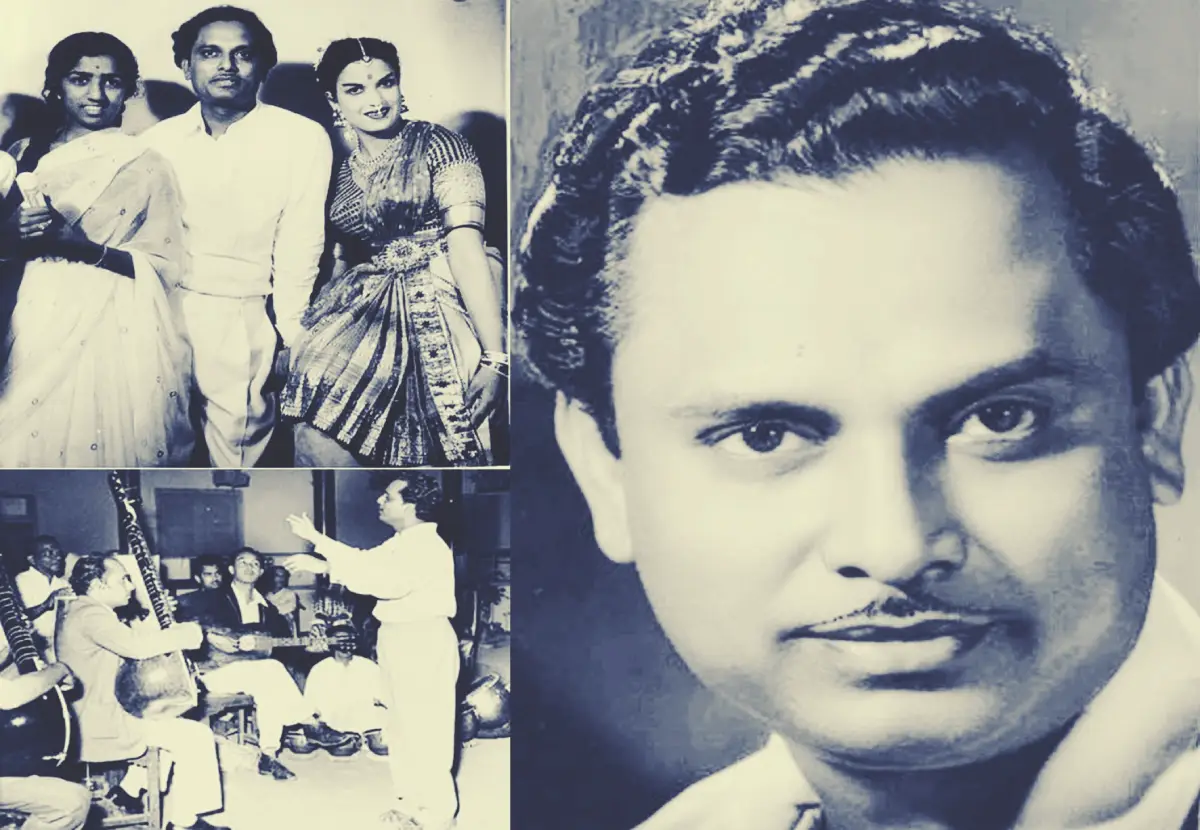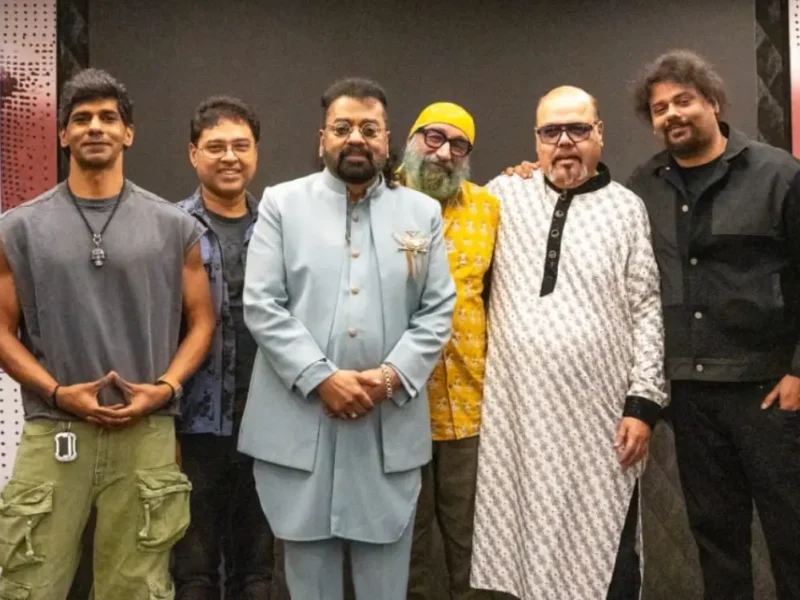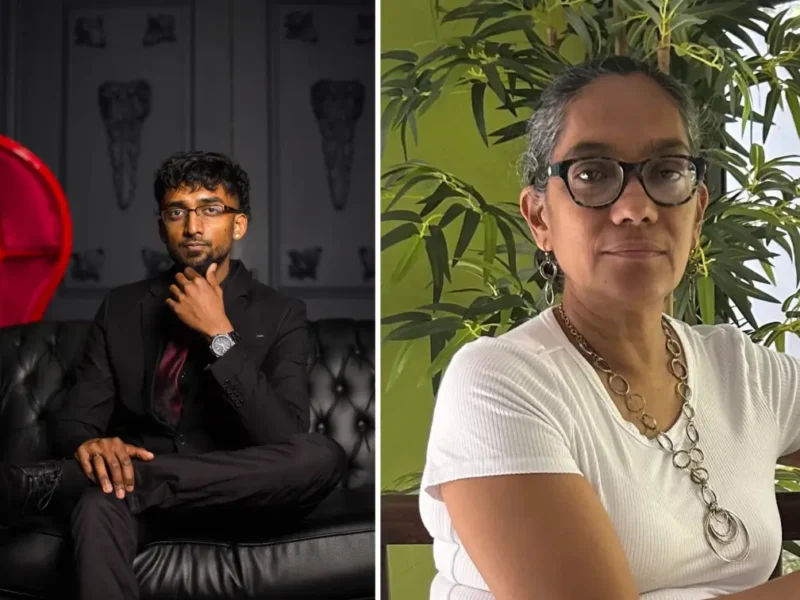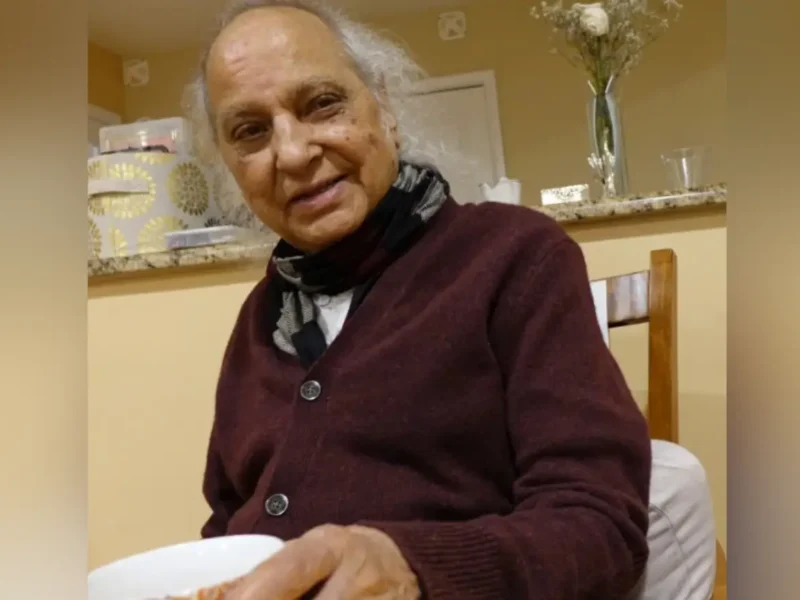
Anil Biswas, The Legend Who Slapped Mukesh, Roshan
NEW DELHI, (IANS) – Among the pioneers of Hindi film music and playback singing, Anil Biswas is now largely forgotten since his last film came out six decades ago. However, his legacy includes giving breaks to and grooming several future legendary singers and music directors, sometimes through an unexpected method: a hard slap!
Mukesh, who struggled with his first playback song, skipped a recording session to seek solace in a bar. Biswas found him there and, upon hearing Mukesh’s lament that he couldn’t evoke the necessary pain for the song, slapped him, declaring that the slap should provide enough impetus. Mukesh went on to create magic with the song “Dil jalta hai” from “Pehli Nazar” (1945).
Music composer Roshan received similar treatment. During the recording of a song for Biswas’ “Arzoo” (1950), Biswas noticed Roshan crying. When Roshan admitted he felt he could never create such music, Biswas tried to comfort him. However, when Roshan continued sobbing, Biswas slapped him and questioned his defeatist attitude. This tough love helped Roshan maintain his faith in himself.
Interestingly, the birthdays of Mukesh (July 22) and Roshan (July 14) are close to Biswas’ (July 7), all in the month of July. The slaps seemed to have contributed to the success of their families as well. Mukesh’s son Nitin became a singer, and his grandson is Neil Nitin. Roshan’s sons Rakesh became an actor and Rajesh a music composer, with the former’s son being Hrithik Roshan.
Biswas also introduced Talat Mehmood to film singing, convincing him that the quaver in his voice was an asset. He mentored Lata Mangeshkar, teaching her breathing techniques that she always acknowledged gratefully.
Beyond mentorship, Anil Biswas played a major role in the development of film music. He was active in Bombay from 1934, after a brief stint in Calcutta, where he worked with K.L. Saigal and S.D. Burman and impressed Kazi Nazrul Islam with his rendition of his poetry. Biswas debuted as a music composer in 1935 at just 21.
He introduced Bhatiyali music of boatmen into Indian film music and blended Indian folk with Western classical music, organizing the first Indian orchestra of twelve pieces. Biswas is also responsible for the first cinematic anti-colonial song, “Door hato duniya waalon, Hindustan hamara hai” from “Kismet” (1943), written by Kavi Pradeep. The song was so popular that reels were rewound to play it repeatedly during screenings.
Biswas was also involved in the freedom struggle, experiencing imprisonment and evading police capture, which disrupted his studies. His career spanned from 1935 to 1965, during which he created music for around 70 to 80 films, focusing on melody over beats.
Recognizing that his music was no longer in vogue by the early 1960s, he left the industry and moved to Delhi, where he headed the AIR’s orchestra and composed music for Doordarshan programs, including “Humlog”. Before his death in 2023, he was a judge on the TV music show “SaReGaMa” and remained unfazed as competitors sang songs by every composer except him, despite his gems like “Seene mein sulagte hai armaan,” “Ae dil mujhe aisi jagah le chal,” and “Raahi matwaale.”



